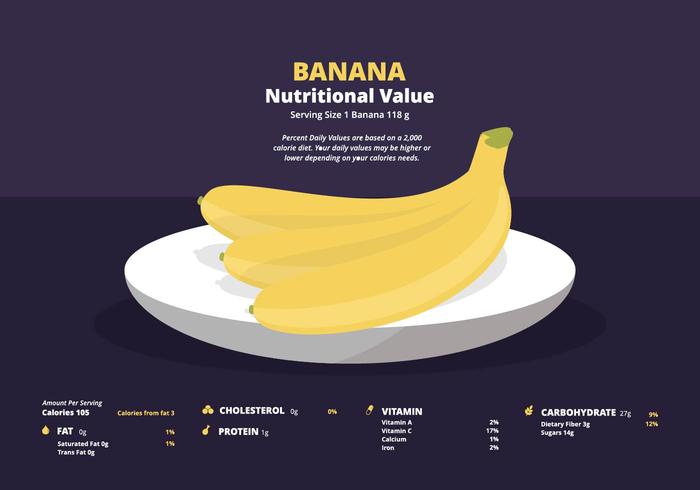

The loads of fiber bananas offer up also help to optimize your digestive health. If that applies to you, and you do decide to indulge in a lot of thoroughly ripe bananas, be sure to monitor your blood sugar carefully. People with type 2 diabetes should exercise some restraint when it comes to banana consumption, though. The average GI score for all bananas settles at 51. Unripe bananas fall at 30, while ripe bananas land at 60. Since bananas rank in the low to medium range on the glycemic index (GI), a measure of how quickly foods increase blood sugar levels, they’re unlikely to cause blood sugar spikes. The researchers found that adding resistant starch to a meal resulted in significantly lower concentrations of glucose, lactate, insulin, gastric inhibitory polypeptide (GIP), glucagon-like peptide-1, and epinephrine. A study with several of the same authors, published in the American Journal of Clinical Nutrition, a monthly, peer-reviewed biomedical journal, found that pectin improved glucose tolerance, but again, could not identify a clear mechanism behind that effect.Īnother study published in the American Journal of Clinical Nutrition looked at how resistant starch impacts postprandial plasma concentrations-meaning, after-meal blood levels-of glucose, lipids, and hormones. The researchers behind that study believe pectin’s effect relates to blood sugar levels, too, but have yet to uncover exactly how.
#BANANA CALORIES FULL#
That means adding foods rich in pectin to your diet can help you stay full for longer. The researchers found that pectin significantly prolonged gastric emptying time. Participants followed a low-fiber diet for two weeks, then switched to an isocaloric diet supplemented with 20 grams of fiber daily, either in the form of apple pectin or alpha-cellulose. Both pectin and resistant starch have been shown to help balance blood sugar levels.Ī study published in Gastroenterology, the official journal of the American College of Gastroenterology and the most prominent in the field of gastrointestinal disease, analyzed the effects of pectin on gastric emptying, glucose tolerance, hormone responses, and jejunal absorption of glucose and lysine. Unripe bananas also contain resistant starch, which functions as an indigestible soluble fiber. As bananas ripen, their water-soluble pectin contents increase and their acid-soluble pectin contents decrease, causing the fruit’s flesh to soften. Other important banana nutrition facts, based on a medium banana, are as follows:ĩ Science-Validated Banana Health Benefitsīananas contain rich stores of pectin, a type of fiber that gives the fruit its characteristic firm, creamy texture. So as you can see, if you were to search for an answer to the question “1 banana calories,” you’d likely get more than one answer! For instance, the count for small banana calories, meaning one between 6” and 6 and 7/8” long, is 89.9.

The calories in one banana do vary, however. As bananas ripen, however, the starch is transformed into glucose and fructose sugars.Īccording to the SELF Nutrition Database, the calories in one banana- a medium-sized banana between 7” and 7 and 7/8” long, that is-total up to 105. In green, unripe bananas, the carbohydrates consist primarily of starch and resistant starch, which have numerous health benefits. Bananas contain almost exclusively water and carbohydrates with very little protein and fat. Testing shows that bananas contain potent doses of antioxidants, as well as plenty of cleansing fiber. The variety you’re most likely to find in your local supermarket is the Cavendish, a dessert banana that’s green when unripe and yellows as it matures. Indisputably among the most popular fruits on the planet, bananas vary in color, size, and shape. Originally native to southeast Asia, bananas are now cultivated in tropical locales around the world. Vital Facts About Banana Calories and Nutrients
/spoon-of-granola-banana-slice-and-coconut-flakes-559555907-57a3547e5f9b58974a2172f7.jpg)
It’s easy to take bananas and banana calories for granted, but these ubiquitous fruits are low-key superfoods, loaded with essential nutrients that benefit your health on a multitude of levels.


 0 kommentar(er)
0 kommentar(er)
